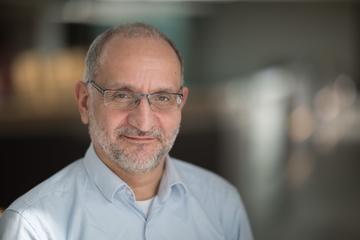Melissa Webby
I’m a postdoc working on tackling antibiotic resistance in bacteria. I am based in the lab of Colin Kleanthous (for almost seven years now!) and more recently also in Lindsay Baker’s lab. I generally do the usual postdoc things— lab research, supervising and teaching students, chatting, having cups of tea, questioning my life choices, and trying to publish papers whilst trying to decide upon and work towards the next career stage.
What has motivated you to be in the job you are today?
We’re so lucky to be able to discover new things about the makeup and function of the world around us. We can’t solve antimicrobial resistance in a day, so I try to acknowledge and celebrate the small wins—like seeing your protein show up on an identification gel or watching someone finally get the data they’ve been chasing. It’s hard if you only focus on the end result or dwell on the negatives. Ultimately, though, it’s the people that keep me going. Having great colleagues makes every day—good or bad—better. I love coming to work because of them.
What would you say have been the biggest challenges you have overcome being a woman in your field?
This is a tricky question, as every woman faces different challenges. For me, one of the biggest has been managing self-doubt—wondering whether I am respected or if my ideas are good enough. Over time, I’ve realised that these feelings are more common than we think and often stem from the highly competitive and high-pressure environment we work in.
Rather than letting those doubts define me, I’ve tried to focus on working hard, supporting those around me where I can, and trusting that actions speak louder than words. Creating a positive and collaborative environment I think helps everyone feel valued and starts to remove some of that competition that often overhangs this field.
What is the most rewarding part of being a female in your line of work?
People assume I’d be great at a pub quiz—even though I’m really not!
But on a more serious note, something I’ve found rewarding is how being in science has helped me grow in confidence and resilience. I don’t say that because I have no insecurities or loads of confidence—but when I look back at who I was a few years ago, I think: "Wow." I’ve learned that there’s a version of me who will speak up when it matters—whether it’s advocating for myself or for someone else. And I don’t think I would have developed that strength without being in challenging situations that pushed me out of my comfort zone.
Who has been your biggest inspiration (if you don’t mind saying)?
I have two. First, Professor Emily Parker, who supervised my NZ equivalent of a Part II project and taught me throughout undergrad. Her excitement for science was infectious, and she explained things so clearly that you couldn’t help but want to get involved. She was also incredibly supportive in helping me shape my career path.

Second, Professor Colin Kleanthous. He took a chance on hiring me and introduced me to the world of bacterial envelopes, which completely changed the direction of my research. He’s taught me to ask big questions, encouraged my independence, and shown me what great mentorship looks like. A big inspiration for the kind of scientist—and leader—I hope to be.
If you could have been anything/or anyone else in the world, what would you have been?
Hands down a farmer. I still consider it! Or if we are talking about unrealistic goals then a professional footballer. Both seem to involve a lot of outdoor time which isn’t great for someone who is terrible in the cold.
What advice would you impart to your younger self?
I actually recently did the “I had coffee with my younger self today” exercise, and the advice I gave her was: stop striving so much—your worth isn’t in how well you perform. You’ve got nothing to prove. You were made intentionally and perfectly, and that doesn’t change based on success or failure. In science—and life—there will always be a “next thing", but if you’re always chasing, you miss the joy of the present. Breathe. Enjoy the now.
Where would you like to see yourself in ten years time?
I’m not entirely sure, to be honest. I think we only have limited control over the paths our lives take. But I hope to be happy, doing meaningful work, and—if it’s possible—closer to family. That would be a win.
How do you spend your time outside of research?
I play football, ultimate frisbee (I’ve played for GB!), and I’ve recently joined the running fad. I also enjoy sewing, gardening, travelling, and listening to Taylor Swift. I’ve picked up a lot of hobbies over the years because I think having a life outside of research really helps with the demands of the job—it keeps things in perspective and makes everything more sustainable.
Do you have any advice for younger women wanting to pursue a career in your field?
Don’t compare yourself to others (I know it’s really hard!). Everyone is on a different path and working in different fields. You can’t know everything—and you don’t have to. Focus on finding something you’re passionate about, make friends, and build a support network around you. Most importantly, remember: you are worthy and not just being a pair of hands in the lab!




